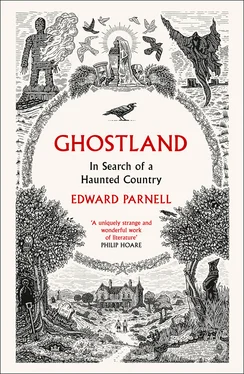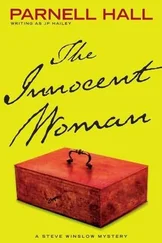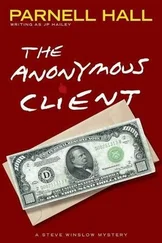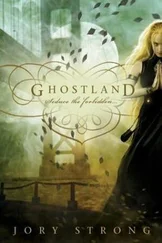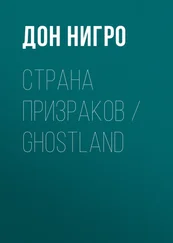Despite the transformation of Scott’s marshland, there are still a couple of ponds behind the lighthouse that hold a remnant selection of exotic waterbirds, including a pair of beautiful red-breasted geese and a sextet of sneering snow geese (a line of black that contrasts with the pink of the rest of the bill – the so-called ‘grinning patch’ – really does give the snow goose a contemptuous expression). This latter North American species gave the title to the bestselling novel by Paul Gallico, who loosely based his story of a reclusive lighthouse-dwelling painter on Scott and a wild pink-footed goose that, in 1936, took up residence among the lighthouse’s fledgling bird collection, returning again in following winters.††
Robert Aickman’s guide to boating holidays, Know Your Waterways , also namechecks Scott’s lighthouse as a notable landmark. Aickman knew Scott – who happened, in addition, to write the introduction to Aickman’s barge book – and the two men, surprisingly, remained friends after Scott’s first wife, the writer Elizabeth Jane Howard, left the conservationist in August 1947 for the thickly bespectacled and besotted Aickman. The couple’s relationship itself ended a little over four years later (in Howard’s memoir Aickman comes across as a rather jealous and controlling figure), though not before the couple had collaborated on a debut 1951 collection of supernatural stories, We Are for the Dark . Each of them contributed three tales, including Howard’s supremely ominous ‘Three Miles Up’, my favourite in the slim volume, which displays the enigmatic qualities we now regard as key characteristics of an ‘Aickman-esque’ story – pointing perhaps to the uncredited influence that Howard’s writing was to have on her lover as, mainly during the 1960s and 70s, he wrote the majority of his critically lauded work. ‘Three Miles Up’ seems autobiographical in its depiction of a narrowboat journey gone awry, and possibly prefigures the rivalries and eventual falling out between Aickman and Tom Rolt, as well as Howard and Aickman’s own parting soon after the publication of their joint collection. The story’s ending offers a purgatorial, nightmare-inducing vision that’s hard to beat:
The canal immediately broadened, until no longer a canal but a sheet, an infinity, of water stretched ahead; oily, silent, and still, as far as the eye could see, with no country edging it, nothing but water to the low grey sky above it.
The unspecified inland English canal setting of ‘Three Miles Up’ was relocated to the Fens in an effective, though loose BBC adaptation of Howard’s story, with the transformation of the central male characters into a pair of estranged brothers, and the addition of a supernatural whistle that could be straight out of M. R. James’s ‘Oh, Whistle, and I’ll Come to You, My Lad’. The drama’s final scenes were shot at the mouth of my own River Welland, the waterway that flowed along the top of my street and which I crossed each day on my walk to school. The crew had only a risky two-hour window, the director Lesley Manning tells me, filming where the river enters the Wash downstream of my grandfather’s Seas End bungalow and adjacent to the marshes of Shep Whites. Those inundated mudflats make a good match for the ‘infinity’ of water that opens out before the reader at the story’s grim conclusion.‡‡
The Nene flowing hurriedly before me now, which has dropped precipitously on the retreating deluge to reveal sludgy cliff-like banks, has its source in Northamptonshire, and runs through an artificially straightened channel past Peterborough, where it becomes tidal. The river’s outfall was completed around 1830, with 900 men and 250 horses labouring to dig out the last seven-mile stretch that replaced the meandering former route. And although in Waterland’s final act Graham Swift has Tom Crick and his father scanning the waters of the Great Ouse – located a few miles away at King’s Lynn – for a sign of his drowned brother Dick, the adaptation of Swift’s novel shot the scene here on the Nene, with Scott’s old lighthouse appearing briefly in frame. The mud of the river and the marshes around Sutton Bridge is often also cited as a possible resting place of King John’s fabled lost treasure. The story finds its way into a book partly set around these same creeks and channels that is regarded by many M. R. James devotees as one of the few great novels in his tradition: The House on the Brink .
In November 2017 I noticed an obituary in my local paper, the Eastern Daily Press , announcing the death of John Gordon – a 92-year-old Norfolk-based children’s author of whom I was unaware. Jack Gordon, as he was known to his friends and family, was born in Jarrow, Tyne and Wear, in the industrial heartland of England’s north-east, before moving in 1937 as a twelve-year-old outsider to Wisbech, with its antithetical landscape of apple orchards and its boundless fields of sugar beet and potatoes. In his memoir he recalled his Tolly-esque arrival in the Fenland town: ‘A full tide from the Wash had lifted the river’s face to within a foot or two of the roadway and we seemed to be riding through a flood.’ In many regards the place seemed magical to the young Jack, far removed from the abject poverty of post-Depression Jarrow. Later, after a stint in the navy at the end of the Second World War, he returned and became a newspaper reporter for the Isle of Ely and Wisbech Advertiser , where he furthered his knowledge of the town and its surroundings. This familiarity shows in his fiction, in which the unsettling flatness of the landscape is virtually omnipresent. ‘It’s the loneliness and absolute clarity of the line between the land and the sky where you can see for miles that always strikes me with a feeling of magic and mystery,’ he said in a 2009 interview about his last novel, Fen Runners .
The House on the Brink was his second work of fiction, following on two years after 1968’s The Giant Under the Snow , a highly regarded children’s fantasy that centres on the legend of the Green Man. Both were written in Norwich, where Jack had moved in 1962. He wrote his early novels while working on the Evening News , having made the same journalistic journey – junior reporter to sub-editor – that my brother would also go on to make.
I ordered a copy of the out-of-print The House on the Brink from Norwich Library – except for one loan in 2003, its previous excursions from the reserve stores had been in the late seventies and early eighties. This isn’t, it seems, a title in high demand, which strikes me as a real injustice, because Gordon’s second book is a wonderful novel. It does indeed contain strong M. R. James-esque elements within its chapters, drawing most notably on ‘A Warning to the Curious’. But, away from its cautions not to meddle with old secrets – and the arcane forces tasked with making sure any such foolish meddlers are punished – the novel is a world apart from James’s comfort zones. At its core stands a burgeoning first romance between its two protagonists, Dick and Helen, aged sixteen and living in Wisbech (and a nearby marshland village, modelled on Upwell), with a supporting affair between a fragile young widow – the mysterious Mrs Knowles – and her new lover Tom Miller.
M. R. James may well not have found the focus of Gordon’s novel on the emotional interaction of these characters – and the deliberate psychological ambiguity of the uncanny events – to his taste. In ‘Some Remarks on Ghost Stories’ he pointed out what he saw as one of the cardinal errors ruining some modern examples of the genre: ‘They drag in sex too, which is a fatal mistake; sex is tiresome enough in the novels; in a ghost story, or as the backbone of a ghost story, I have no patience with it.’§§
Читать дальше
